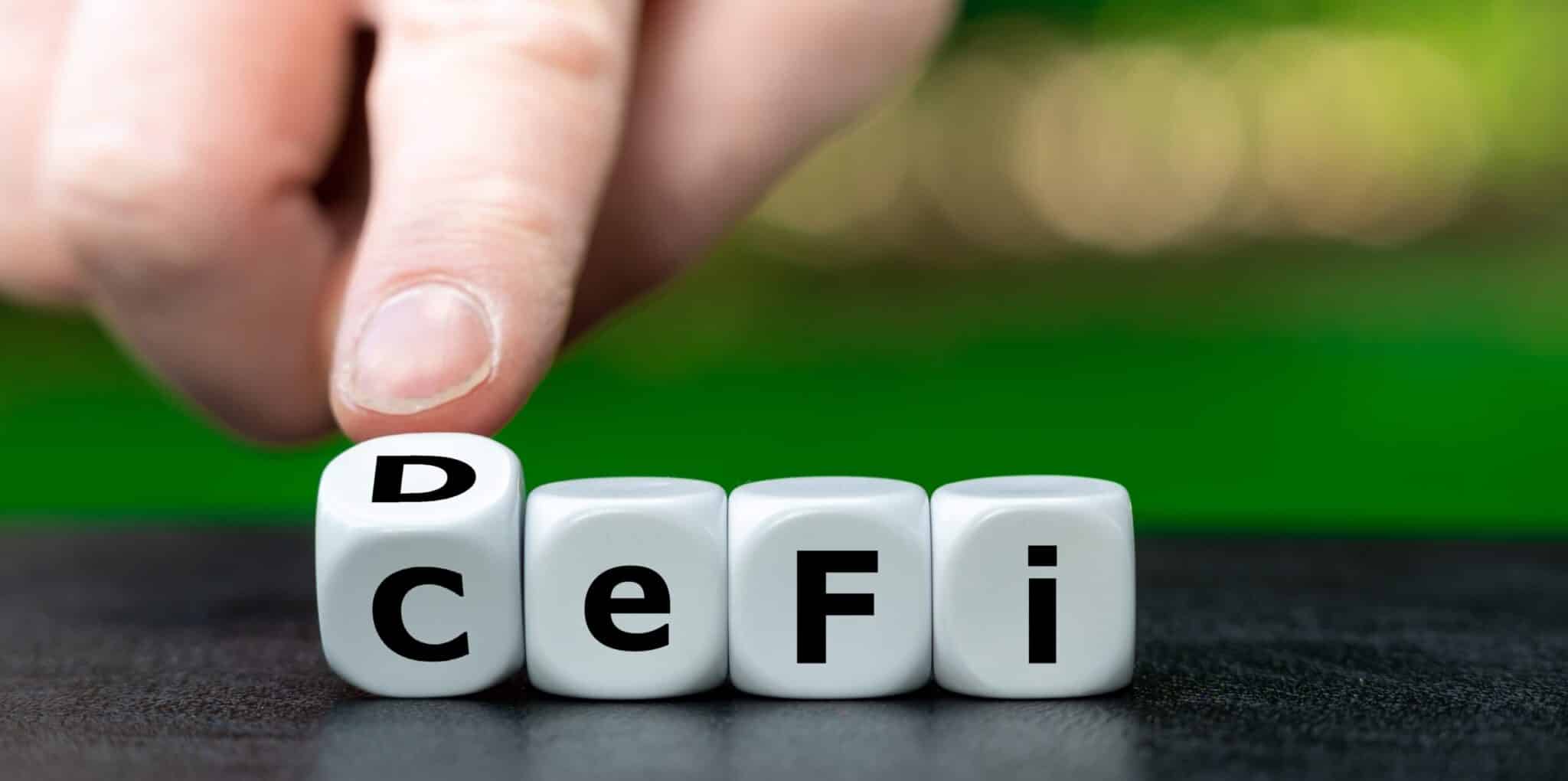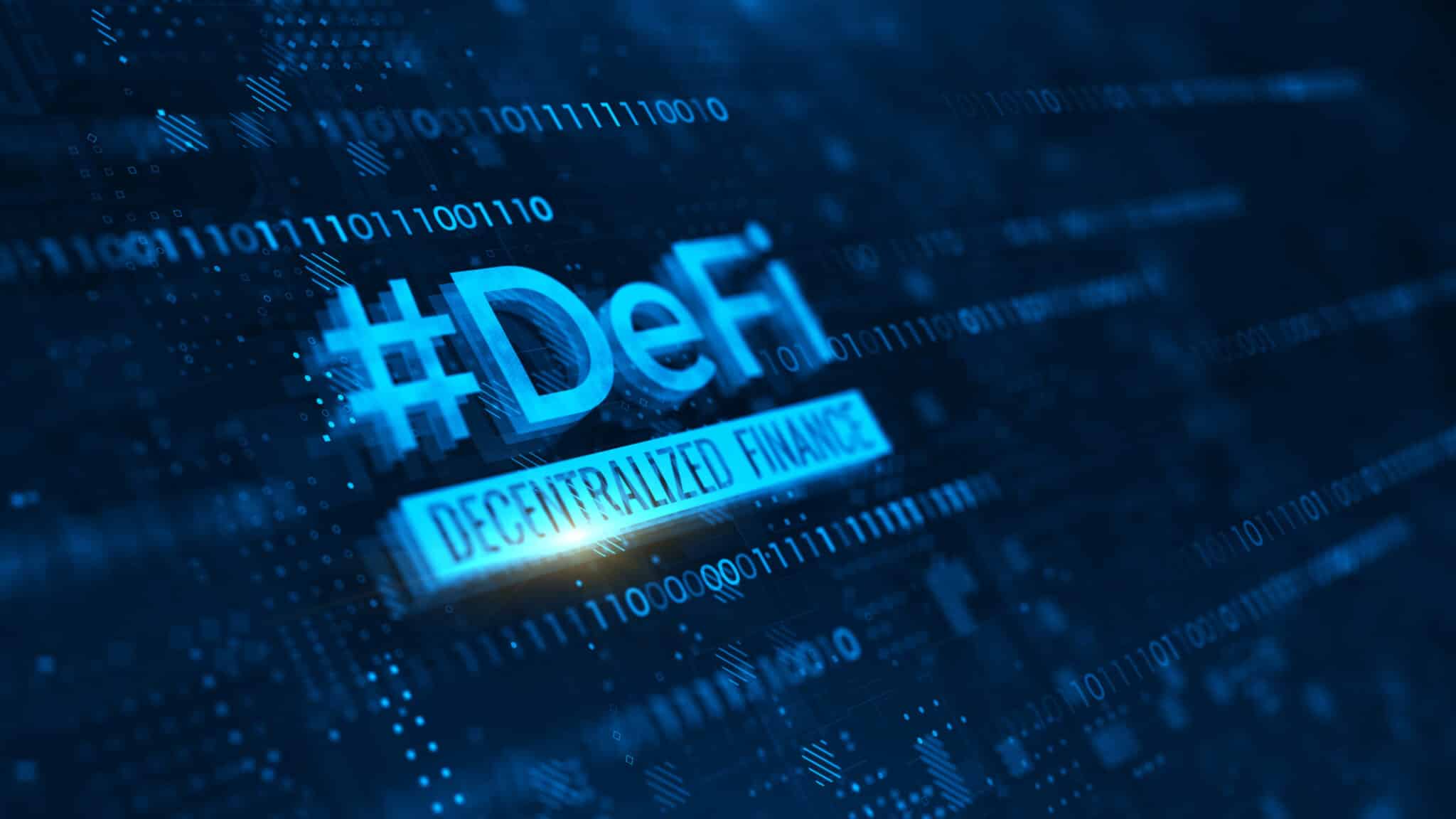Since DeFi took the world of finance by storm, I’ve been studying it to understand how this new technology works.
What I’ve learned is that DeFi is a groundbreaking financial movement that uses blockchain and smart contracts to eliminate banks and other traditional financial institutions, allowing users to access global economic markets securely and transparently.
In this guide, I’ll explain what DeFi is, how it works, and why it’s such an important movement in today’s digital world!
What Does Decentralized Mean?
Decentralized means that no single entity is in control of the transaction. Instead, it is governed by a system of smart contracts and protocols.
This means that DeFi transactions are potentially more secure than ones carried out through traditional banking systems.
What is DeFi? (Decentralized Finance)?
Decentralized finance, also known as DeFi, is a cutting-edge concept in banking and finance that depends on peer-to-peer exchanges made feasible by blockchain technology.
DeFi eschews traditional financial middlemen like banks or brokers in favor of “trust-less” banking through blockchain.
Why do investors need to care? DeFi seeks to help investors “become the bank” by allowing them to lend money peer-to-peer and receive higher returns than those provided in traditional bank accounts.
Using digital wallets, investors may quickly and conveniently transfer funds to any location and access their funds without incurring the fees associated with conventional banking.
In 2022, $854 billion in trades were completed on decentralized exchanges using 5,687,713 different trading addresses. Here are some details on how DeFi functions, how it may benefit users, how it differs from traditional banking, and the risks it presents.
DeFi uses technology as an alternative to relying on centralized financial entities, including:
- Banks
- Exchanges
- Insurance companies
DeFi systems create distributed consensus via “smart contracts” on blockchains like Ethereum. Developers design smart contracts to do predetermined tasks only under specific conditions.
Even though Ethereum was the first to develop smart contracts, other blockchain platforms can use them. For example, you could create a smart contract stipulating that someone else will receive $300 if the Houston Astros win the World Series the following year.
Once the code has been published to the blockchain, everyone in the network may access and read it, but no one can modify it.
Decentralized apps, sometimes known as “dapps,” are not controlled or owned by a single company or person. Smart contracts are routinely used to manage them.
DeFi eliminates the need for a mediator or centralized authority and enables any two parties to transact business securely and directly. As a result, many more consumers can access financial services for much less money or at interest rates that are superior to those offered by traditional banking institutions.

DeFi and Blockchain
Decentralized finance is made possible by crucial technologies like blockchain and cryptocurrencies. The applications of DeFi we see today are examples of a created blockchain ecosystem for DeFi apps, built especially for that financial institution and with its needs in mind.
Your banking history is kept on record each time you make a transaction in your standard checking account in a private ledger that a significant financial institution controls. Digital records of financial transactions are recorded in a distributed, decentralized public ledger known as the blockchain.
When we say that a distributed ledger like blockchain keeps every transaction as encrypted code, we genuinely mean the public ledger. As a result, all parties utilizing DeFi applications have a comparable public ledger. This secures the system by giving users payment verification, anonymity, and an asset ownership record that is (almost) impossible to modify through fraudulent behavior.
Blockchain is referred to as decentralized when no mediator or central gatekeeper is overseeing the system. By resolving challenging mathematical riddles and adding new blocks of transactions to the chain, parties utilizing the identical blockchain could verify and record transactions.
Is DeFi Cryptocurrency?
DeFi is not cryptocurrency – it’s a system built on top of existing cryptocurrency networks to provide us with access to new and innovative financial products. Cryptocurrency is just one asset that can be managed using DeFi protocols and applications.
What DeFi does is allow you to use cryptocurrencies like Ethereum (ETH), Bitcoin (BTC), Ripple (XRP) along with others to lend, borrow and trade securely without the use of a bank or other traditional financial institutions.
This is possible due to the use of smart contracts and blockchain technology which creates an immutable data record that cannot be altered.
This ensures transparency, security, and trust in all transactions made on the network. Moreover, DeFi also opens access to a wide range of financial services that were previously inaccessible or too expensive for the average user.
How is DeFi Different From Bitcoin?
DeFi is an extension of cryptocurrency, but they are two entirely different concepts. Bitcoin is a digital asset or virtual currency that uses cryptography to secure transactions and control the creation of new units.
It is decentralized, meaning it doesn’t need a centralized third party for governance or regulation, as all users can use it without permission from any authority.
On the other hand, DeFi is a decentralized financial system built on top of existing cryptocurrency networks that provides access to new and innovative financial products.
What makes DeFi different from Bitcoin is its ability to provide users with access to a wide range of financial services like lending, borrowing, trading, insurance, and more at low costs.
Is Ethereum or Bitcoin DeFi?
No, neither Ethereum nor Bitcoin are DeFi.
Bitcoin is a digital asset or virtual currency that uses cryptography to secure and control the creation of new units. It is decentralized, meaning it doesn’t need a centralized third party for governance or regulation.
Ethereum, on the other hand, is an open-source, public blockchain-based platform that enables users to develop and deploy decentralized applications.
The future of cryptocurrency and the world of finance is here, and it’s called DeFi.
DeFi is a new type of financial system built on top of existing cryptocurrency networks like Ethereum and Bitcoin.
It provides access to new and innovative financial products at low costs, such as:
- Lending
- Borrowing
- Trading insurance
It uses smart contracts and blockchain technology to create an immutable record of data that cannot be altered.
This ensures transparency, security, and trust in all transactions made on the network. What’s more, DeFi also opens up access to a wide range of financial services that were previously inaccessible or too expensive for the average user.
Centralized Finance Vs. Decentralized Finance
It’s important to understand the differences between centralized finance (CeFi) and decentralized finance (DeFi).
Technology is changing the world of finance at a rapid pace. What was once done through centralized intermediaries like banks and financial institutions can now be done in a more efficient and cost-effective way with DeFi protocols.

Centralized Finance
Centralized finance operates with a middleman or entity that is responsible for overseeing and controlling the activities of its users.
This means that all transactions must go through one central gateway to be processed. All funds are stored on servers owned by the company; therefore, decisions can be made quickly as there is no need to wait for consensus from other network participants.
Decentralized Finance
On the other hand, decentralized finance (DeFi) is built on top of existing cryptocurrency networks. It does not require users to trust any centralized authority or middleman to use its services.
It is powered by smart contracts and blockchain technology, creating an immutable record of data that cannot be altered. This ensures transparency, security, and trust in all transactions made on the network.
DeFi opens up access to a wide range of financial services that were previously inaccessible or too expensive for the average user.
DeFi is gaining traction as users recognize its potential to revolutionize how we manage our finances.
DeFi can also provide users access to more diverse and efficient financial products than what is currently available from traditional banking institutions.
DeFi Use Case
Working with a DeFi platform instead of a traditional financial institution may have various benefits, regardless of what you want to accomplish.
Anyone with internet connectivity can utilize a DeFi platform, unlike some who find it challenging to create bank accounts or apply for loans. DeFi transactions are possible everywhere because of the high degree of accessibility.
DeFi has low fees but high-interest rates and permits direct transactions between parties. Transaction costs are significantly reduced without an intermediary, and parties can immediately negotiate interest rates.
DeFi networks typically offer borrowers interest rates far more significant than those provided by traditional banking institutions.
All documented transactions and smart contracts on a blockchain exist. Blockchain cannot be changed since they are immutable.
Smart contracts are carried out to safeguard the anonymity of the network’s users; blockchain technology delivers security and transparency to DeFi platform users. In the transaction data, your proper name is obscured.
Lastly, DeFi platforms are independent of any centralized financial organizations in terms of functionality. The economic collapse of 2008 highlighted the significant interdependence of the mass of banks and governments and clarified the dangers of centralized systems.
Your money may be held by certain financial entities that could run into trouble, commit fraud or corruption, or run up too much debt and fail. The decentralized design of DeFi protocols considerably lowers this danger.
Risk/Reward
Since DeFi technology is just so new, unfavorable outcomes can occur. Startups using DeFi technology may fail (startup failure is widespread), and programming errors may present rich opportunities for hackers.
You can risk all of your money if a DeFi project that you invested in or saved money with fails.
Deposits made at conventional, centralized financial institutions are insured by the Federal Deposit Insurance Corporation (FDIC), while DeFi platforms often don’t provide any means of money recovery.
Consumers can file a complaint with the Consumer Financial Protection Bureau (CFPB) if a regular financial transaction goes wrong. Still, they do not have this recourse if they are the victims of a fraudulent DeFi transaction.
It’s intriguing to see that a new style of DeFi application is becoming available to address these drawbacks.
Decentralized insurance, created by individuals pooling their money as collateral, is offered to those seeking a mechanism to protect themselves against losses from other smart contracts. The people who make contributions to the bitcoin pools are the ones who collect the premiums paid by insured individuals.
DeFi Pros and Cons
DeFi has several benefits and downsides. Understanding the pros and cons is essential before investing in DeFi projects.
Pros
Some pros of DeFi are:
- Increased liquidity
- Lower transaction costs
- Global access to financial services
- More efficient capital markets
- Peer-to-peer (P2P) trading
- Higher interest
Cons
Some cons of DeFi are:
- No regulatory framework
- High Risk of failure
- Security flaws in smart contracts
- Potential hacks and theft
Conclusion
Decentralized blockchain, according to proponents of DeFi, enables safer and more transparent financial transactions than the secretive, private systems used in centralized finance.
That said, its implementation is rather complicated, so many current leaders on the market have turned to a blockchain development company for help.
After all, blockchain knowledge and expertise are necessary for you to be able to make the most of decentralized finance.
Do you have any questions? Let us know in the comments below!
DeFi FAQ
DeFi, or Decentralized Finance, is an ecosystem of financial services built on top of open and permissionless blockchains. The main goal of DeFi is to remove central intermediaries from traditional finance and provide access to financial products such as lending, borrowing, trading, and investing without relying on a third-party custodian.
DeFi offers users better security, privacy, and control over their digital assets using smart contract technology and decentralized networks.
DeFi works by leveraging blockchain technology to allow users to interact with digital assets in a completely secure and peer-to-peer manner. Through decentralized applications (dApps) running on open blockchains like Ethereum, users can access a range of financial services such as lending and borrowing funds, trading tokens or other digital assets, investing in projects, or participating in liquidity pools.
These activities can be done without going through any centralized intermediary or custodian such as banks or brokers. As all transactions are secured using cryptographic techniques, users are guaranteed greater privacy and security for their funds.
The types of financial products offered via DeFi include:
– Lending protocols that allow borrowers to get loans while lenders earn interest on deposited funds
– Trading platforms that enable users to exchange tokens and digital assets securely
– Investment opportunities that offer exposure to different asset classes
– Stablecoins that allow for quick conversion between fiat currencies
– Decentralized exchanges (DEXes) which offer seamless token swaps
– Liquidity pools that allow users to earn rewards for providing liquidity
– Asset management tools allow users to automate their portfolio management with ease in derivatives markets, enabling traders to speculate on different asset prices
– Insurance protocols that protect against risks associated with crypto investments
– Yield farming solutions that generate passive income through staking tokens or participating in liquidity pools
DeFi brings many advantages compared to traditional finance, including:
– Greater accessibility for anyone with an internet connection around the world
– Full interoperability across different blockchain networks without requiring any additional fees for transactions
– Faster transaction times due to the absence of third-party intermediaries like banks or brokers
– Increased transparency due to immutable records stored on public ledgers accessible by everyone at anytime
– Improved privacy, as no personal information needs to be revealed when interacting with digital assets via smart contracts
– Improved security due to cryptographic algorithms securing all transactions and funds stored in wallets without authorities being able to control them


